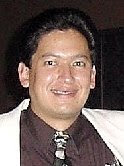(by Shanken News Daily) Executives from the Wine & Spirits Wholesalers of America (WSWA), the Distilled Spirits Council (DISCUS) and the American Beverage Licensees (ABL) traded views on the recent trend toward privatization of beverage alcohol control states at an industry briefing in Washington, D.C., yesterday. While each of the participants expressed official neutrality in the privatization debate, Washington state’s recent move to end its retail and wholesale spirits monopolies was questioned not only on policy merits but also on the methods used to achieve it. Costco, the chief backer of that initiative, was the target of ample criticism during the discussion.
On the policy side, WSWA president and CEO Craig Wolf argued that vertically integrating the supplier and wholesaler functions, as will happen under Washington’s plan, benefits only large chain businesses like Costco at the expense of other industry participants and consumers and threatens to undermine the existing regulatory balance. “Unfortunately some interests have tried to hijack the recent privatization movement and destroy the balance (between the tiers) by tilting the beverage alcohol system in favor of one party or another,” he said. “That’s something that WSWA has vehemently opposed.”
The issue of lost revenue from Washington’s spirits business activity was also raised. “How do you possibly expect to have the same revenue—absent the contribution of the retail and wholesale businesses—without some extraordinary fee or tax structure?” DISCUS president and CEO Peter Cressy asked, suggesting that Washington’s experience will prove instructive to would-be privatizers looking ahead. Wolf added that, because of new taxes and fees aimed at replacing that lost revenue, current supplier and wholesaler estimates were that spirits prices would rise by between $4 and $20 a bottle in Washington after privatization takes effect June 1 (echoing comments made to Shanken News Daily in recent months by local spirits companies like Dry Fly Distilling).
Meanwhile, John Bodnovich, speaking for smaller retailers as executive director of the ABL, said that because Washington’s privatization was enacted by referendum, it didn’t receive the same level of public debate it would have if taken up by the legislature. He also took umbrage with its requirement that spirits sellers have at least 10,000 square feet of retail space. (While that requirement will clearly hinder some mom-and-pop retail operations, it’s also been cited as a way to keep convenience stores and gas stations out of spirits retailing.) Bodnovich too predicted higher prices and fewer choices for Washington spirits consumers after June 1.
Subscribe to:
Post Comments (Atom)


No comments:
Post a Comment